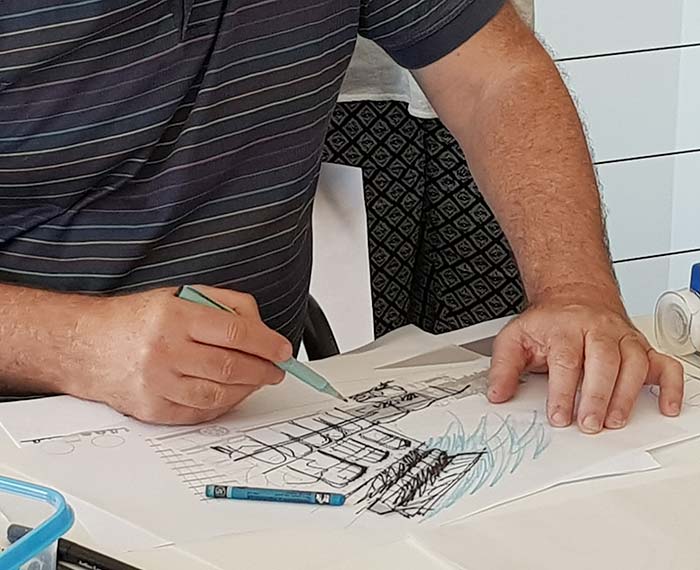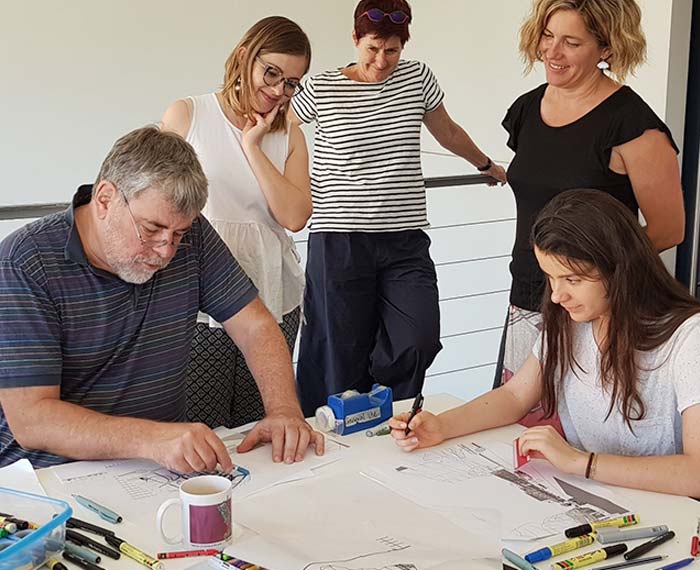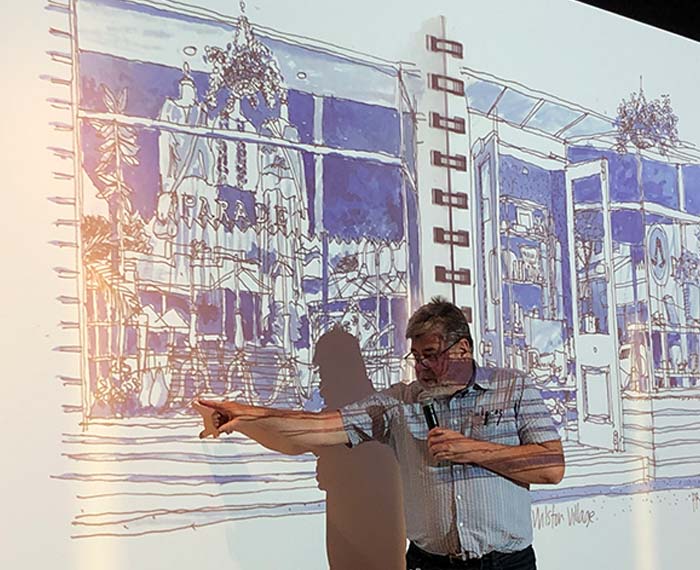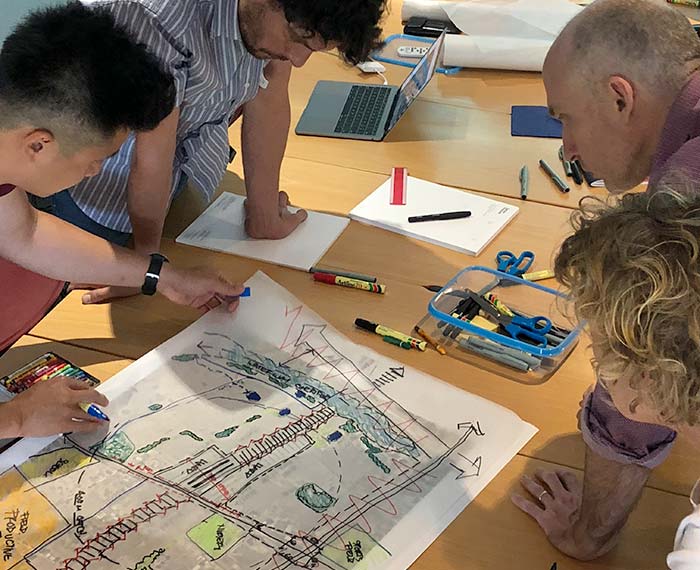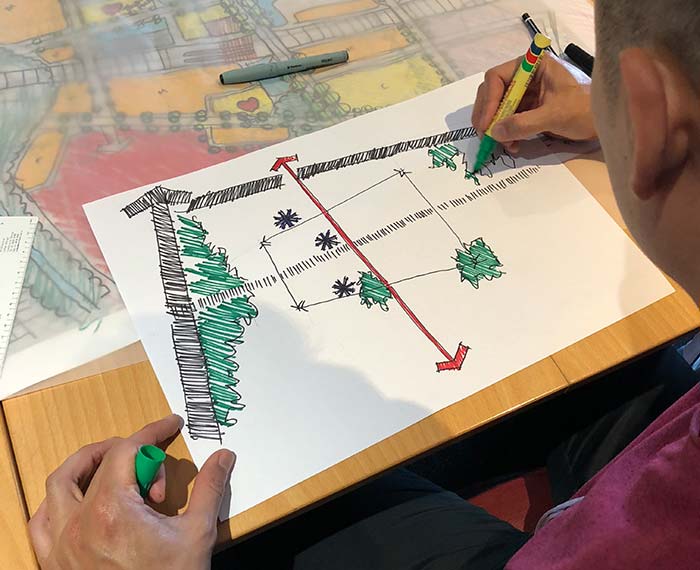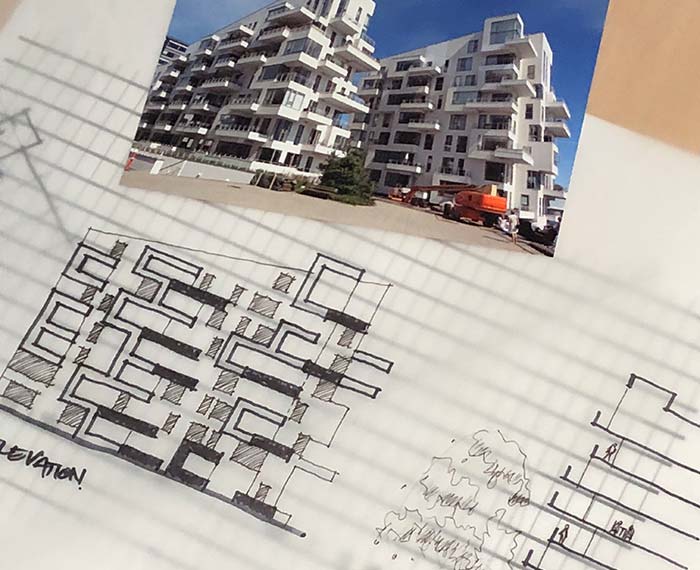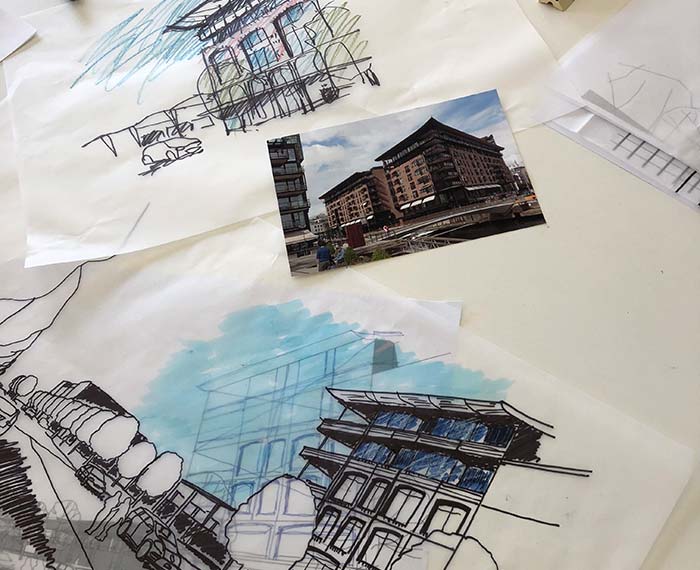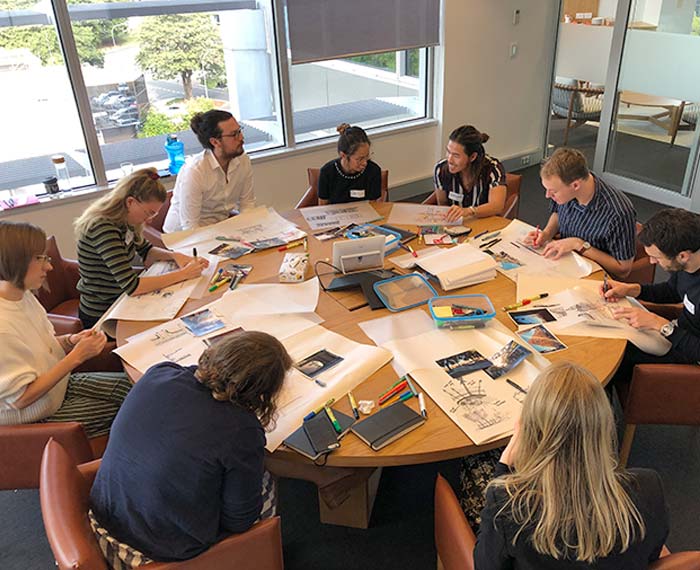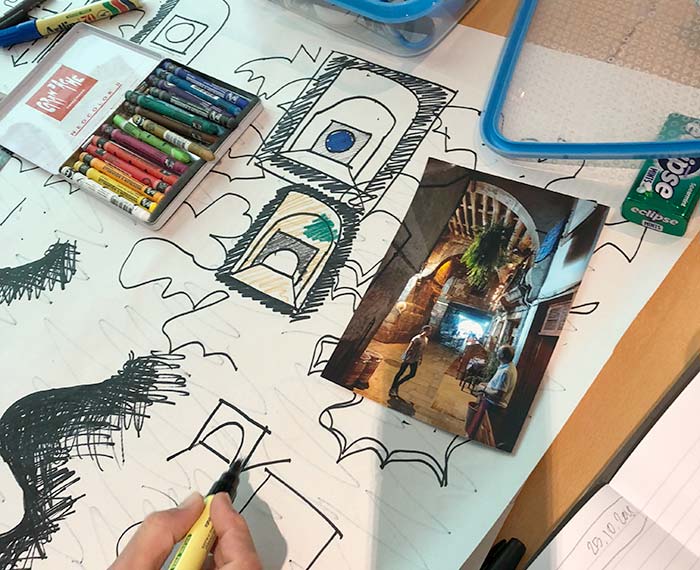Workshops
DesignThinkingDrawing focuses on how to use freehand drawing to design and think about urbanism and architecture. DesignThinkingDrawing shows how to prepare drawings and diagrams to analysise, synthesise, generate and explain ideas. The more conventional plans at various scales, sections and perspectives are also demystified. Using a local case study, a workshop approach is used, working individually and in small groups, undertaking specific design and drawing exercises and presenting to the wider group for review and feedback. Guidance is provided through presentations with drawing examples from practice, group and individual tutorials. Techniques are demonstrated and participants are helped to practice them.
DesignThinkingDrawing builds on Peter Richards’ 35 years of reflective practice in urban design and architecture, and his extensive collection of drawings throughout this time. His book DesignThinkingDrawing forms the coursework for the workshops and participants will receive a copy of the book.
Who should attend?
These workshops are for professionals at all levels and drawing abilities wanting to develop or improve their design thinking and drawing skills. Attendees at previous workshops have included local and state government planners, young professionals, property industry consultants, academics, students, engineers, surveyors, development managers and other built environment professionals including urban designers, architects and landscape architects. The range of participants adds to the richness of the training.
The book DesignThinkingDrawing is the course work for training workshops and are an excellent way to learn and improve skills. Workshops can be conducted over 1, 2 or 3 Days. Programs can be tailored to address specific interests and needs. Workshops have been successfully conducted in North and South-East Queensland, most states in Australia, and in London.
1 Day Workshop – Primer
The Primer focuses on the fundamental ideas and skills of DesignThinkingDrawing. The workshop enables participants to gain confidence in putting lines, shapes and tones on paper and improving visual thinking and memory. We look at urban observation and analysis of various places throughout the world. There are exercises about how lines, shapes and colours create meaning, how drawings and diagrams describe urban analysis, strategic concepts and ideas. The principles of setting up perspective sketches are explained and demonstrated. The Primer is day one of a two-day workshop.
2 Day Workshop – DesignThinkingDrawing
This two-day workshop is the preferred format for DesignThinkingDrawing. The two days enables time to undertake a range of exercises. On day one, there is a focus on improving drawing and visual thinking skills. On the second day groups design and present ideas for a new urban precinct. This case study site is master planned, usually at a scale of 1:1000. Strategic diagrams, cross sections and other drawings explaining the design intent are prepared.
Two-day workshops are often partnered with other organisations. Partners to date have included UDAL (Brisbane), JCU (Cairns), PIA (Victoria), Taylor Burrell Barnett (Perth), Academy of Urbanism (London) and Ethos Urban (Sydney)
DesignThinkingDrawing Built Form and Character
This workshop focuses on the detailed built form and character of buildings and spaces of an urban precinct. The principles of good urban design are addressed and the way that distribution of land-uses for both public and private uses, movement networks, block types, are explained. The role of buildings in contributing to an urban environment is appropriate building types, and forms, and architectural design. Drawings will include character principles drawings, cross-sections and perspectives, both eye level and aerial. These workshops sometimes extend the typical two-day workshop into a third day.
In-house training workshops
These workshops usually one day in duration with smaller groups of 8 to 16. One day workshops start with the one-day programs and can be tailored to meet specific interests and needs. Often, a current project is used as a focus of the workshop.
In house workshops have been conducted with USC, Stockland, Gold Coast City Council, South Bank Corporation, RPS Arup, Ethos Urban (Brisbane).


